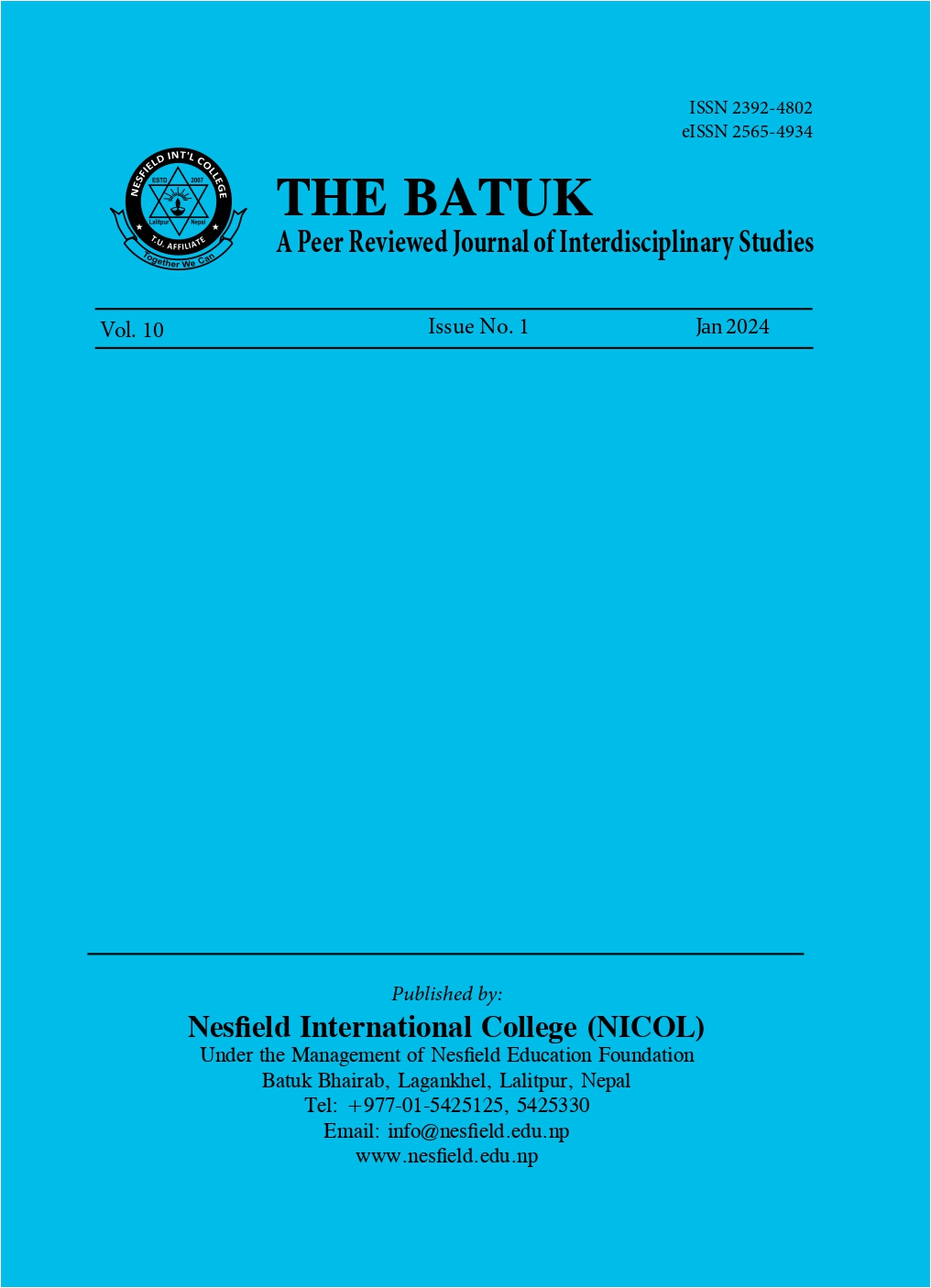Learning English Through Non-English Subjects: A Survey on Nepalese EFL Students
DOI:
https://doi.org/10.3126/batuk.v10i1.62300Keywords:
non-English subjects, mother tongue, EFL, vocabulary, exposureAbstract
In Nepal, students are taught various subjects using two different mediums of instruction. The majority of teachers prefer using English as the medium of instruction, but there are still some who opt for their mother tongue. This research aimed to investigate the impact of teaching English through non-English subjects on the vocabulary development of Nepalese EFL students. A total of seventy-four students participated in this study and were divided into two groups: one group learned English through non-English subjects (SLETNES) as the experimental group, while the other group learned non-English subjects in their mother tongue (SLNESMT) as the control group, based on teachers’ preferences for the medium of instruction. Both groups of students completed a questionnaire, and the data collected were analyzed to determine which group exhibited better vocabulary learning outcomes. The study spanned four sessions, with each session lasting 40 minutes. The data analysis revealed a significant difference between the two groups, with SLETNES students being exposed to a more extensive vocabulary.
Downloads
Downloads
Published
How to Cite
Issue
Section
License
Copyright (c) 2024 Nesfield International College

This work is licensed under a Creative Commons Attribution-NonCommercial 4.0 International License.
This license enables reusers to distribute, remix, adapt, and build upon the material in any medium or format for noncommercial purposes only, and only so long as attribution is given to the creator.




